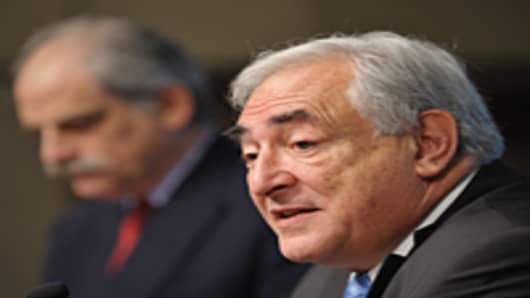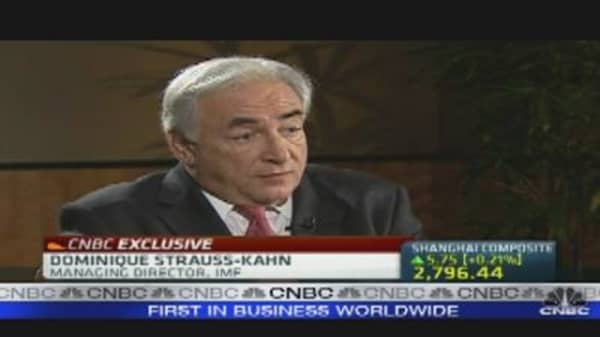Youth unemployment in Egyptand Tunisia was a ticking "time bomb", IMF chief Dominique Strauss-Kahn told CNBC Tuesday, adding that he had warned of such a situation developing back in the summer.
"I remember that this summer I made a speech in Morocco about the question of youth employment including Egypt, Tunisia, saying it is a kind of time bomb and that one of the main concerns the government may have around the region was to try to fix this problem because it couldn't last very long," he said.
He said despite positive indicators at the macroeconomic level, it was impossible to ignore the high levels of inequality that existed.
"Such a high level of unemployment, especially youth unemployment, and such a high level of inequality in the country create a social situation that may end in unrest."





